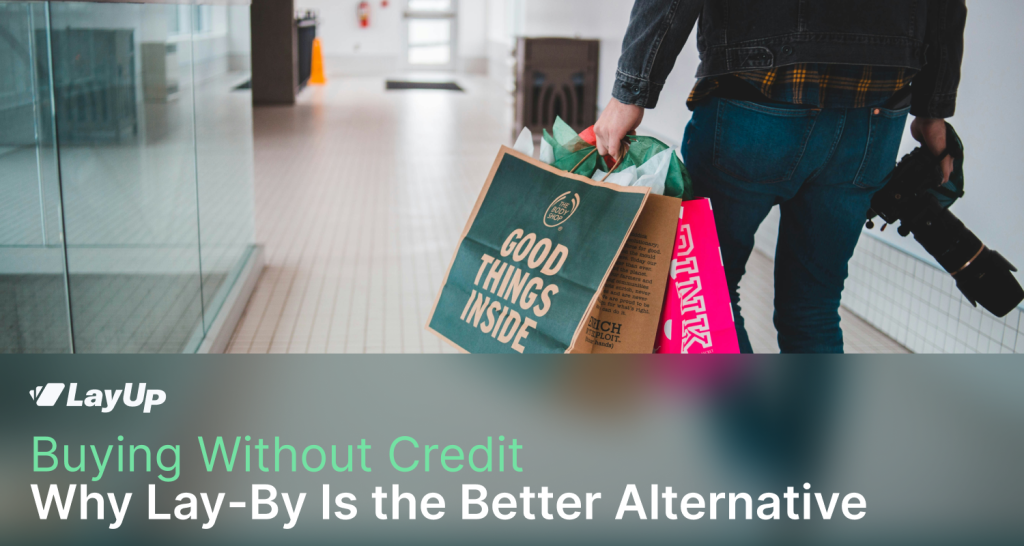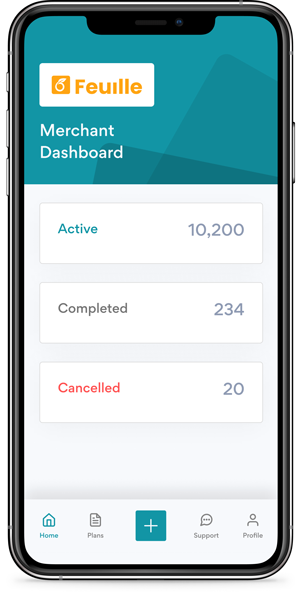Lay-by and credit are often lumped together in the same category. They seem very similar, both being extremely convenient methods of buying when exact funds aren’t available. But there’s a significant difference, and it boils down to money management matters. That means saving, budgeting, and the careful dodging of that dreaded ‘debt’ word.
Let’s address the lay-by versus credit stand-off and determine which type of buying is better for your finances.
How Lay-By Payment Works
With lay-by, you typically make a down payment on an item and then pay it off over time by making regular payments until the balance is paid in full. This can be a good option if you don’t have the funds to pay for something upfront. However, it does require discipline and organisation, as you must ensure that your payments are made on time every month to avoid any late fees or penalties.
You can learn more about how Lay-by works in South Africa
How Credit Payment Works
By contrast, using credit allows you to purchase items and pay for them later, either through monthly payments or a lump sum payment at the end of a set period. This is a good option if you need something right away. Still, you may also get a better deal on your purchases by using credit, since many retailers offer discounts or special financing offers when you use their store credit cards. However, using credit comes with the risk of accumulating debt and potentially paying high interest rates, so it’s important to tread carefully and avoid overspending.
Why Is Lay-By the Better Alternative to Credit?
Lay-by is a better alternative to credit for several reasons. First, it allows you to pay in instalments over time, making it less expensive than traditional credit options. Second, it gives you greater control over your finances, since you only purchase what you can afford and aren’t subjected to punitive interest rates or fees. Third, lay-by offers more flexibility than other forms of financing. For example, you can return items for a full refund if they don’t work out or your circumstances change.
LayUp is free to use with no interest charged. With us, payments are fast and straightforward—a new way for Africa to transact.
Buy Without Credit – Frequently Asked Questions
1. What are the advantages of lay-by?
There are many advantages to using a lay-by when shopping. For one, it allows you to spread out the cost of your purchases over time, making them more manageable and less burdensome on your budget. It also gives you the flexibility to make changes or cancel your order at any point before it is fulfilled. And perhaps most importantly, laybys help you avoid spending money unnecessarily. Since you only pay for what you take home with you, there is no risk of impulse buying or falling prey to advertising gimmicks.
2. Is lay-by a form of credit?
No, lay-by is not a form of credit. Instead, it is a payment option that allows consumers to pay for items in instalments rather than all at once. This makes it ideal for those who want to make large purchases but cannot afford the full cost upfront.
While there are some similarities between layby and traditional forms of credit, such as instalment loans or credit cards, there are also some key differences. For one thing, layby tends to have lower interest rates and fees than other types of credit. Additionally, many retailers offer special discounts or promotions to customers who use lay-by for their purchases, making it an attractive option for shoppers on a budget.
Whether you’re looking to make a large purchase or want extra time to pay for your items, layby is a useful payment option to help you save money and manage your finances.
3. Can you pay off the lay-by early?
Yes, paying off your lay-by early is possible if you need to. Generally speaking, most retailers will allow you to make payments or even pay the entire balance of your lay-by upfront if you wish.
However, there may be some exceptions depending on the terms and conditions of your particular layby agreement. For example, some retailers may charge a cancellation fee or other penalties if you cancel or terminate your lay-by before it has been fully paid off.
So, before deciding to pay off your layby early, it’s important to read through the fine print to understand any potential fees or penalties that may apply.
4. What percentage does LayUp take?
LayUp is a popular online shopping platform that charges a percentage of every purchase made through its site. This percentage can range from 2% to 5% of the total cost, depending on the seller and the product type being purchased.

